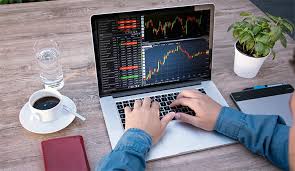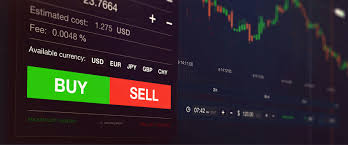
Understanding Forex Trading: Definition, Benefits, and Strategies
Forex trading, or foreign exchange trading, refers to the global marketplace for buying and selling currencies. It is the largest financial market in the world, with a daily trading volume exceeding $6 trillion. Traders participate in this decentralized market to profit from fluctuations in currency prices. forex trading definition Best Platforms for Trading provide essential tools and resources for both new and experienced traders, enhancing their ability to navigate this complex environment.
What is Forex Trading?
At its core, forex trading involves the simultaneous buying of one currency while selling another. This is done in currency pairs, such as EUR/USD or GBP/JPY. Each currency pair consists of a base currency (the first) and a quote currency (the second). Traders aim to predict the direction of currency movements, benefiting from successful predictions and avoiding losses from incorrect ones.
The Structure of the Forex Market
The forex market operates 24 hours a day, five days a week, and is open for business across major financial centers globally, including London, New York, Tokyo, and Sydney. Unlike traditional stock markets, which have fixed trading hours, the forex market allows for round-the-clock trading, offering flexibility for traders to engage at their convenience.
The forex market is made up of various participants, including banks, financial institutions, corporations, governments, and individual retail traders. Central banks often intervene in the market to stabilize or increase the value of their currencies, which can create substantial volatility and trading opportunities.
Types of Forex Market Participants
Understanding the different participants in the forex market is crucial for developing effective trading strategies. Key types of participants include:

- Centrals Banks: They influence currency values by setting interest rates and conducting monetary policy.
- Commercial Banks: These institutions facilitate currency trades for clients and manage portfolios.
- Corporations: They engage in forex to hedge against currency risk or to make international payments.
- Retail Traders: Individual traders who participate for speculation, seeking to profit from currency price movements.
Benefits of Forex Trading
Forex trading offers numerous advantages that attract both novice and experienced traders:
- Liquidity: The forex market is highly liquid, allowing for fast execution of trades and minimal price slippage.
- Leverage: Many brokers offer leverage, enabling traders to control larger positions with a smaller amount of capital.
- Diverse Trading Options: With numerous currency pairs available, traders can choose from a wide range of options.
- 24-hour Market Access: The continuous nature of the forex market allows traders to operate flexibly and adapt to changing conditions.
- Low Transaction Costs: Forex trading usually incurs lower transaction costs compared to other markets, especially in terms of spreads.
Forex Trading Strategies
Success in forex trading largely depends on the strategies employed by traders. Some popular strategies include:
- Day Trading: Involves opening and closing trades within the same day, capitalizing on short-term market movements.
- Swing Trading: Traders hold positions for several days or weeks, aiming to profit from medium-term price swings.
- Scalping: This high-frequency trading strategy seeks to profit from minor price changes, often executing multiple trades within a short time frame.
- Position Trading: Long-term strategy where traders hold positions for extended periods, often based on fundamental analysis.
Key Terms in Forex Trading
Familiarity with essential forex terminology is vital for novice traders. Some key terms include:
- Spread: The difference between the bid price and the ask price, representing the cost of trading.
- Pip: The smallest price move in a currency pair, usually the fourth decimal place.
- Margin: The minimum amount required to open a position in leveraged trading.
- Lot: A standard unit of measurement for forex trades, indicating the volume of a trade.
Conclusion
Forex trading presents a dynamic and potentially lucrative opportunity for traders of all experience levels. Understanding the definition, structure, benefits, and strategies of forex trading can empower individuals to make informed decisions in this intricate market. As the landscape of forex trading continues to evolve, utilizing the right platforms and tools is crucial for achieving success and navigating the complexities of currency trading.

